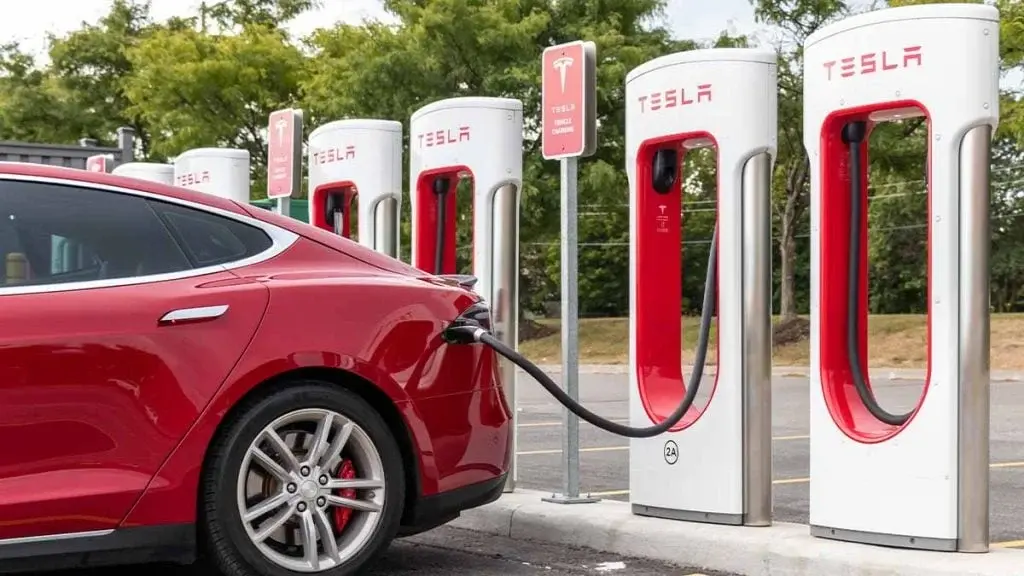Tesla’s recent expansion of its Non-Tesla Supercharger Pilot program in South Korea is a significant development in the electric vehicle (EV) industry. This expansion allows other EVs to utilize about half of Tesla’s Supercharger sites in the country, totaling approximately 80 locations. What makes this move noteworthy is that South Korea predominantly uses the CCS1 connector for DC fast charging, which is different from Tesla’s proprietary NACS connector used in the U.S. and Canada.
Tesla’s commitment to universal charging solutions
To accommodate this difference in charging standards, Tesla has equipped its charging stations in South Korea with built-in CCS1 adapters, also known as Magic Docks. This adaptation showcases Tesla’s commitment to universal charging solutions that go beyond brand exclusivity. The recent installation of the 1,000th charger in Incheon-Yeonsu further emphasizes the rapid expansion of Tesla’s charging infrastructure in South Korea.
Implications for charging standards and Tesla’s role as a charging provider
The broader implications of Tesla’s expansion in South Korea raise questions about the future of charging standards in the country. Will local manufacturers like the Hyundai Motor Group continue to stick with CCS1, or will they consider shifting towards Tesla’s NACS connector? This move by Tesla also highlights the company’s growing role as an EV charging provider for other networks worldwide. Tesla has recently entered agreements to supply charging technology to BP Pulse in the U.S. and EG Group in Europe.
A global expansion of Tesla’s pilot program
Tesla’s pilot program is not limited to South Korea alone. It now spans across over 20 countries in North America, Europe, and the Asia Pacific region. Tesla’s universal adoption of charging technology, coupled with its efforts to adapt to local standards like CCS1 in South Korea and GB/T in China, indicates a strategic move towards creating a more interconnected and accessible global EV charging network.
Overall, Tesla’s expansion of its Non-Tesla Supercharger Pilot program in South Korea marks a significant milestone in the EV industry. By accommodating different charging standards and actively working towards a more interconnected global charging network, Tesla is leading the way towards a future where electric vehicles are widely accessible and convenient for all.


Leave a Reply